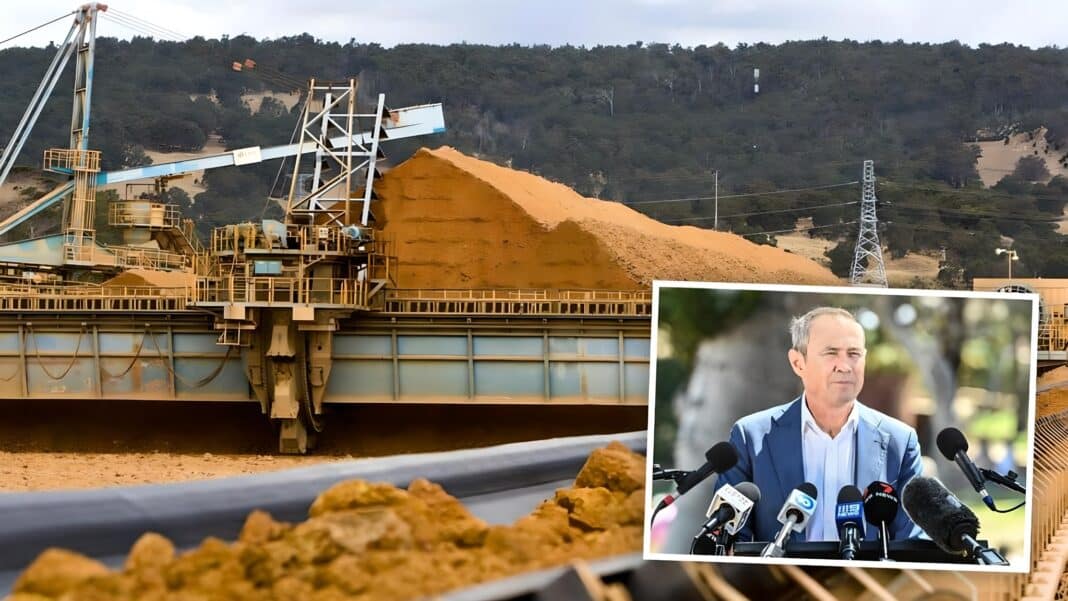The WA Government has reiterated its total commitment to exit commercial harvesting of State Forests from next year.
The decision will see nearly 2 million hectares of native karri, jarrah and wandoo forests protected for future generations, according to WA Environment Minister Reece Whitby.
According to Minister Whitby, the decision reflects the community’s changing attitudes towards native forests and “builds on the legacy of the (past) Gallop Labor Government’s commitment to end old growth logging.”
Speaking to the media on Sunday morning, Minister Whitby joined Forestry Minister Jackie Jarvis in saying timber will only be removed from the State’s forests “to maintain forests health and for approved mine site operations.”
“The move by the Cook Government will safeguard our ionic forests for generations to come,” according to Minister Jarvis.
In May, the WA Labor Party replaced Mark McGowan with Roger Wood, with Wood Central exclusively revealing that the Socialist Faction of the party pushed former Premier McGowan into exiting native forest harvesting.
“McGowan was a firm supporter of fuel reduction burning,” according to Roger Underwood, who was appointed a Member of the Order of Australia for his decades of service to forestry and bushfire management in the State.
“He understood both the purpose and the science and appreciated its importance,” he said.
Minister Jarvis said the government will spend $350 million investing in the State’s softwood plantations to provide “better building materials to protect existing jobs, as well as provide 140 additional positions.”
To date, $80 million has already been spent on the Native Transition Plan, which, according to Minister Jarvis, “included significant industry restructure payments.”
She said the investment would help ease the State’s housing crisis and prevent climate change by boosting pine forest plantations.
“The record investment in WA plantation estate will ensure the state will continue to build houses in WA, supporting both the location construction industry and the Southwest forestry industry.”
In September 2021, the McGowan Labor government announced an end to native forest harvesting from 2024.
At the time, the Forest Industries Federation (WA) said the decision was made without warning or consultation.
To assist with the transition, the government announced an investment of $350 million to expand Western Australia’s softwood timber plantations to create and support sustainable WA jobs.
According to a statement from the WA government, the decision to end logging of native forests in the Forest Management Plan 2024-33 will preserve at least 400,000 hectares of karri, jarrah and wandoo forests.
This accounts for the nearly 2 million hectares of native forests referenced by Minister Whitby.
About 9000 hectares of high conservation-value karri will also receive immediate protection, with other high-value forest areas to be recommended for national park status.
Controversially, bauxite mining will be exempt from the ban.
Jack Bradshaw, who participated in developing the WA Regional Forestry Agreements, has reported on the government’s preference for strip mining over sustainable forest management.
From 2024, timber from native forests will be limited to forest management activities that improve forest health and clearing for approved mining operations, such as Alcoa.
Last month, Gavin Butcher, a former director of the WA Forest Products Commission and guest lecturer at Edith Cowan University, reported that a poll of 1,000 people found support for Western Australia’s sustainable forest industry to continue.
In the first polling since then Premier Mark McGowan announced the logging ban, it has been revealed that a large majority of West Australians (72% support, 17% oppose) wanted local regrowth forests to continue to provide wood for furniture, flooring, decking, heritage, and firewood uses.
“Forestry Ministers Dave Kelly and Jackie Jarvis have been unable or unwilling to explain this policy decision rationally. Nor have they tried to find a future for the industry from the planned ecological thinning,” Mr Butcher said.
The WA Forest Products Commission has also been silent on the issue.
“This lack of a government narrative for forestry sees the approval of the government’s handling of forestry matters at a dismal 18% (55% disapproval, 18% approval),” according to Mr Butcher.
At the same time, environmental groups have hailed the decision as a breakthrough for 40-year-community conservation efforts.

Back in September 2021, the Conservation Council of WA Director Piers Verstegen said the decision would “usher in new and exciting opportunities for the Southwest while removing a major threat to wildlife and biodiversity.”
“This decision reflects overwhelming support for protecting native forests across the community.”
“This welcome policy direction will pave the way for the growth of sustainable industries in the Southwest, including exciting opportunities in tourism, plantation forestry, honey production, land management, and other industries compatible with forest protection.”
“This is a turning point. The time of clear-felling our ancient forest for low-value woodchips is about to end, and exciting opportunities lie ahead for communities and businesses in the Southwest.”
“Protection of native forests is critical in the fight against climate change and essential in providing homes and habitat for our unique and endangered wildlife that are suffering from the clearing of habitat, climate change and other threats.”
“When protected from burning and logging, native forests can absorb millions of tonnes of Co2 from our atmosphere yearly.”
“The ending of destructive logging practices will mean our forests will play a critical role as a climate solution.”
The Conservation Council of WA is the State’s foremost non-profit, non-government conservation organisation, representing more than 100 environmental organisations across Western Australia.






